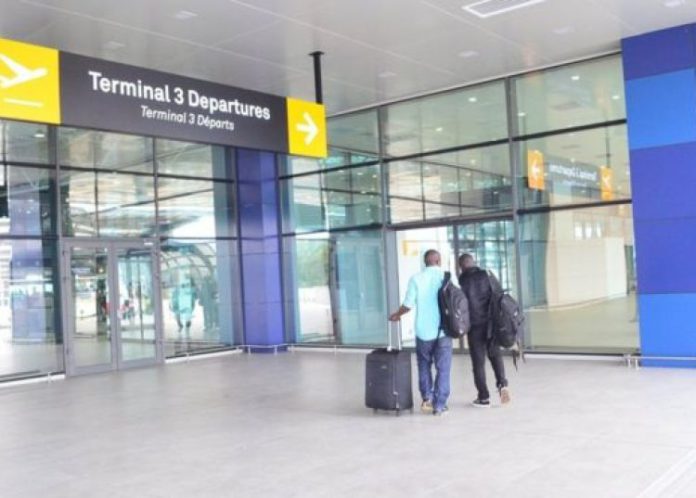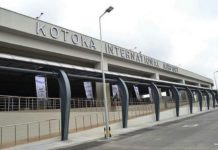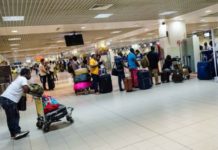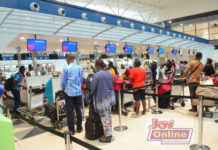
The Elmina castle at Cape Coast in the Central region was the first trading post built by the Portuguese on the Gulf of Guinea.
It is the oldest European building in existence south of the Sahara and served as a fortress for the transatlantic slave trade by the Dutch in 1637.
The Elmina castle is now a relic where Africans from across the globe visit to experience the torture their forebears were subjected to during the Trans-Atlantic slave trade.
The ‘Door of No Return’ in the castle symbolized the passage through which slaves walked and never returned.
In 2019, President Nana Addo Dankwa Akufo-Addo announced the ‘Year of Return,’ urging Africans from the diaspora to journey back to their roots. This initiative led many Diasporas to the country and transformed the ‘Door of No Return’ into the ‘Door of Return,’ symbolizing Africa’s freedom from slavery.
However, one may question whether Ghanaians have truly been freed from slavery or if it is merely a form of mental slavery. Glorifying everything that comes from abroad has been a major challenge in the country, from clothing and electronics to certificates.
Despite the pressing economic challenges in Ghana, a surge in the number of citizens seeking opportunities abroad has turned Kotoka International Airport’s Terminal 3 into a symbol of hope and departure.
The number of people leaving the motherland for opportunities abroad is increasing daily. According to the Migration Policy Institute (MPI), approximately 235,000 Ghanaian immigrants and their children (the first and second generations) live in the United States, with Ghana-born individuals accounting for only 0.3 percent of the total U.S. foreign-born population.
In 2019, an estimate from the Office for National Statistics showed that, the Ghanaian-born population in the UK accounted for around 114,000 residents.
The Ghana High Commission in Canada also estimated that, more than 100,000 Ghanaians live in Canada with the majority being professionals in government services, medical professionals, lecturers in universities and colleges, and an increasing number in private commercial trade in Ghanaian and African products.
Seeking better prospects abroad has become a compelling requirement for many Ghanaians, as seen by the mass outflow of people leaving the airport in search for greener pastures.
The U.S. Embassy in Ghana reports that, 6,468 Ghanaians chose to study in the United States in the academic year 2022–2023, a startling rise of 31.6%.
Surprisingly, Ghana is now the 23rd most popular country in the world for sending students to study in the U.S- the Embassy reports.
Aside academics, the country is grappling with brain drain as there has been a high number of outflow of talent from the health sector.
According to data from the Ghana Registered Nurses and Midwives Association (GRNMA), a significant 10,209 nurses and midwives requested permission to pursue employment overseas between January and July 2023. In addition to impacting the domestic labour market, this enormous migration has created vacancies in key sectors.
Kotoka International Airport’s Terminal 3, built for international transit, has become a temporary haven for many Ghanaians looking to fly abroad as demand for international travel rises. The terminal reflects the nation’s youth and their shared dream and resolves to explore foreign lands.
A term for this phenomenon has been coined by the youth as ‘Japa syndrome.’ Many are selling off their properties, others are emptying their life savings, and more are going through cheaper routes as holding bays to leave the country by any means.
The Embassies in Ghana, mainly the U.S., U.K., and Canada are chocked with large numbers of people seeking to get their visas approved.
This, however, has created a business for what Ghanaians call ‘the goro boys,’ who charge large amounts of money to cut corners and expedite document processing.
In November 2023, Deputy Minister of Foreign Affairs Kwaku Ampratwum-Sarpong hinted at a potential increase in passport application fees. This announcement underscores the escalating demand for travel documents, painting a vivid picture of citizens’ eagerness to explore opportunities abroad.
Terminal 3 at Kotoka International Airport bears witness to a profound societal shift as Ghanaians, particularly the youth embark on journeys in pursuit of better opportunities abroad.
However, amid this wave of migration, one cannot help but wonder: Is leaving the homeland the optimal solution for the nation’s economic challenges, or should we collectively strive for transformative changes to keep the brightest talents within our borders?
I will leave this question for our leaders who claim to be moving heaven on earth to stop the youth who are the future of Ghana from moving abroad.


![Unknown men ransack A5 Security Services office at KIA [Video]](https://www.adomonline.com/wp-content/uploads/2025/03/maxresdefault-9-218x150.jpg)



